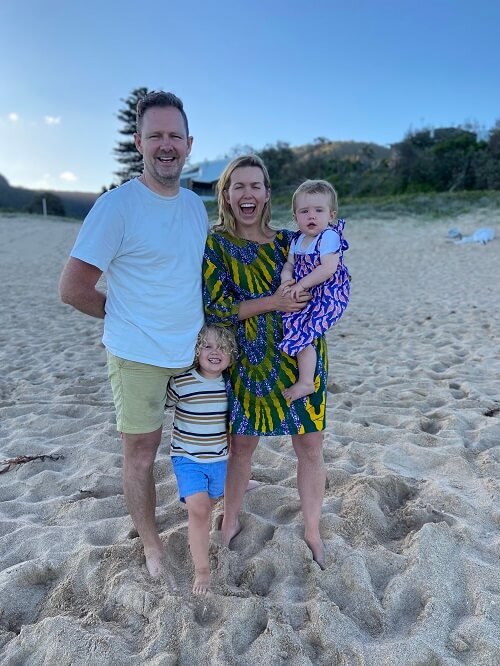
Leon is back doing some of the things he loves, like swimming and cycling. But he recognises many things have changed for him since before he had cancer.
He's still undergoing treatment for brain cancer, to which he's responding really well, but he now has a strong energy and desire to share his story to help others.
Read on to learn why Leon wants more men to develop the skills to be more open about their feelings.
Recognising the benefits of opening up to others
I've got a very small group of male friends. Many of them I've met through cycling. I've told them I have brain cancer, but I haven't been able to tell them about the emotional rollercoaster that it puts you through. I've held back on that.
The conversations with my male friends are usually quite transactional - what is radiotherapy? what is going on in my treatment? that type of thing.
This is where my wife would say it's been difficult for her because I put a lot of pressure on her. All the dark and introspective moments I have, I generally only share with her. She would prefer it if I had people outside of the relationship that I could have these conversations with. I didn't always realise what a heavy burden that was for her to carry, but I do now.
I was lucky enough to connect with Cancer Council's Hospital Liaison at my hospital. We got to know each other very well over 6-7 months, and she helped me navigate a lot of the challenges that cancer threw at me, which was amazing.
The unique challenges younger people face during cancer
One of the things I've realised in my cancer journey, is that a lot of cancer information is geared towards patients who are often much older, who often have grown-up children who can look after them.
I am in my mid-40s now, but my marriage is still relatively young. We still have a lot of work to do, our children are young and we're navigating tough money decisions.
One example is how they tell you to get as much sleep as possible when you're going through cancer treatment, but I couldn't do that - you know, your kids come into your room at 3am, you end up getting ratty and tired, and it impacts on your relationship. I think these challenges are underestimated.
Another example came after radiotherapy, when my medical team prescribed me with a very strong form of chemotherapy. The treatment may have treated my cancer, but it would have made me feel really ill all the time, which I just couldn't afford. I thought "if I'm laid low by really toxic treatment, my family will struggle".
Luckily, I got a second opinion and was able to push for a less aggressive chemotherapy that has just as good a prognosis.
Thankfully, I've not only responded very well to treatment but have also benefited from complementary therapies such as mindfulness and breathwork.
Developing the skills to share your experiences and listen to others
I know we're training men to ask, "are you okay?". But I find that that's often where the conversation ends. I think the answer they want is "yes" - men aren't trained yet for what if the answer is "no, I'm not okay".
One example I remember is with a guy who I'd consider to be a very close friend, someone I can confide in - I thought he would be the biggest support. In the early days after my diagnosis, I sat in the pub with him, we were having a talk about things, and I just realised how quiet he got.
He said, "I don't know what to do, I don't know what to say".
I told him, "You're doing a great job, just by listening to me"
I'm not sure he believed me. He was really upset that he wanted to support me, but he didn't think he was.
Maybe he put too much pressure on himself, I don't know.
My cancer diagnosis has led me to view life very differently to before. I feel like most men are a little sceptical or unsure of discussing their personal issues. And I want to be part of that movement of changing this, of encouraging men to talk about and look after their health and mental health. I hope by sharing my story, I will help other people open up about their feelings with their mates.
I genuinely believe that I've been given an opportunity because it is life changing. My identity has changed since my cancer diagnosis and I'm welcoming this as an opportunity to make a difference for others.
If you are affected by cancer and need information or support, please call Cancer Council's free and confidential support line on 13 11 20.






